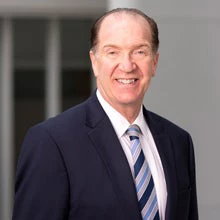I would like to briefly highlight some of my writing and engagements from last week:
Op-Ed: To Cope With Covid, the World’s Poor Need Debt Relief
In last week’s Wall Street Journal, I published an op-ed urging greater transparency and timely and meaningful debt relief for the people of the world’s poorest countries. These are immediate, critical needs as countries work to recover from the global pandemic, and we can no longer afford to kick the debt can down the road – developing countries need relief now.
I highlighted five urgent ingredients for countries as they work to recover:
-
A sustained debt-service suspension
-
Deep debt-burden reduction
-
Fuller creditor participation
-
A level playing field to resolve debt crises
-
Debt transparency to protect the people
For their part, developing countries themselves also need to take steps to ensure transparent and sustainable national policies that support the poor.
On the part of the G-20, those governments should instruct and create incentives for all their public bilateral creditors, and forcefully encourage the private creditors under their jurisdiction, to participate fully in debt relief efforts.
For now, too many creditors in G-20 countries are continuing to take payments, and the current playing field is tilted to favor creditors, including the vulture variety, over poorer borrowers. This leaves no viable escape from poverty for the people of the debtor countries.
G-20 creditors should seek timely and meaningful debt relief for distressed borrowers, through both lower interest rates and actual write-downs in some cases. The common framework reached by the G-20 should avoid repeating the “extend and pretend” approach that delayed recovery after previous debt crises.
Meeting with Deputy Prime Minister Jamshid Kuchkarov of Uzbekistan
Last Wednesday, I held a friendly meeting Deputy Prime Minister Jamshid Kuchkarov of Uzbekistan, during which we focused on Uzbekistan’s economic reforms and the World Bank Group’s ongoing fast, broad COVID-19 response.
Our discussion covered a number of important issues, including agriculture, climate, SOE reforms and privatization, and Uzbekistan’s push for greater transparency. I was especially glad to see his focus on transparency, which will help with new infrastructure and investment.
UN Chief Executives Board Meeting
Last Friday, I was pleased to join UN Secretary General Antonio Guterres, IMF Managing Director Kristalina Georgieva, and other UN Chief Executives Board Members to update participants on the World Bank Group’s ongoing COVID-19 response, and to highlight the need for greater action on transparency and debt relief.
The World Bank Group is committed to a country-focused COVID-19 response , and I was pleased to update participants on our fast track approach to emergency health support programs, which now covers 111 countries.
I was also glad to highlight our financing package of up to $12 billion to help low- and middle-income countries access and distribute COVID-19 tests, treatments and vaccines, once approved by regulatory agencies.
On debt and investment transparency, I emphasized the pressing need to create fiscal space so countries can finance health services, provide social protection and promote economic recovery. While efforts on debt service suspension have been a positive step in the right direction, we need to consider debt stock reduction, and we need to do so quickly.
I look forward to a positive discussion of these issues and more with G20 Finance Ministers and Central Bank Governors this week, and I am thankful as always for the efforts of our World Bank Group staff as we together seek to improve development outcomes for the world’s poorest, and return developing nations to growth and good health.


Join the Conversation